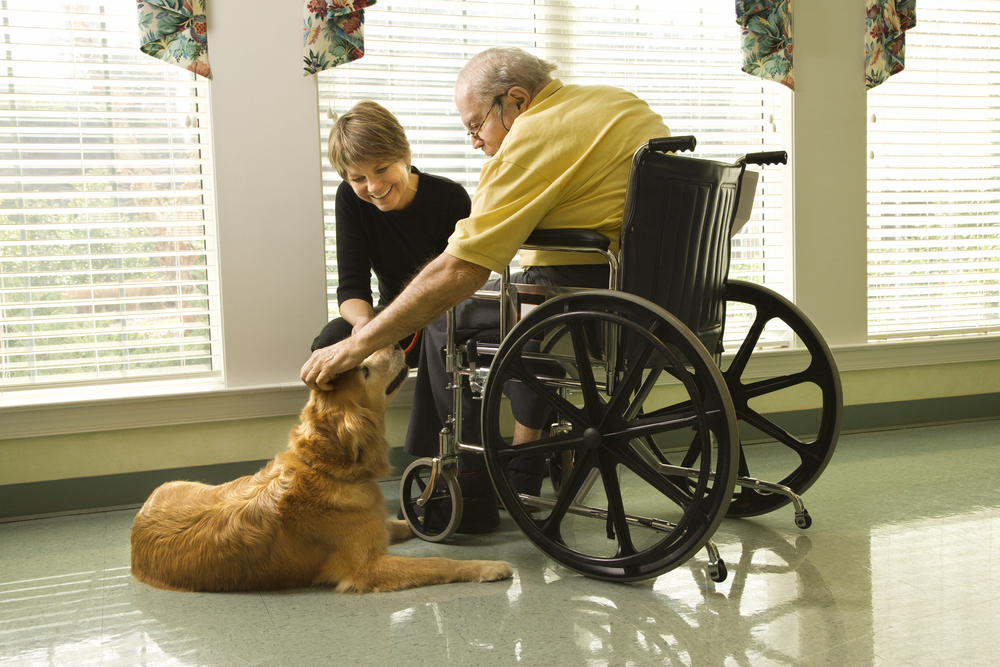With one of the largest senior populations in New Jersey, Bergen County is home to a growing number of older adults seeking supportive services and housing options. As the senior population continues to rise, the demand for high-quality senior living and assisted living facilities has never been greater.
For families in Bergen County, deciding if and when assisted living is the right choice for a loved one can be both emotional and complex. Recognizing the signs that it may be time to transition, and understanding the wealth of local resources available, can make this challenging decision easier and ensure your loved one’s safety and quality of life.
The Emotional Struggle of Choosing Assisted Living

The decision to transition a loved one to assisted living is never easy. For many families, it comes with a swirl of emotions—guilt, sadness, fear, and sometimes even relief. It’s normal to feel conflicted. On one hand, there’s the hope that a structured environment with professional care will improve your loved one’s quality of life. On the other, there’s the worry that the move might feel like abandonment or that it signals a loss of independence for your loved one.
This decision often brings up questions that can weigh heavily: “Am I doing the right thing?” “Is it too soon, or too late?” “How will they adjust?” Families may also struggle with their own feelings of inadequacy, wondering if they could have done more to help their loved one age in place.
Adding to the difficulty is the fact that no two situations are alike. Some seniors are ready to embrace the move, while others resist the idea of leaving their homes. Balancing these emotions with practical considerations like safety, health, and social well-being can make the process feel overwhelming. Knowing that you’re not alone in this journey—and that resources are available to guide you—can help ease some of the burden.
Could This Be Your Story?
Imagine a loved one who has lived independently for decades, but lately, you’ve started noticing changes. Once social and active, they’ve become increasingly isolated. You might find unopened mail piling up, expired food in the refrigerator, or medications left untouched.
Despite assurances that they’re fine, you see the signs—missed appointments, forgotten meals, or even small accidents around the house. Perhaps they’ve had a fall and couldn’t call for help, leaving you feeling both worried and helpless.
Balancing your own responsibilities—work, family, and personal commitments—makes it hard to provide the care they need, even with the best intentions. After weighing the options, you start to wonder if assisted living could be the solution.
If this resonates with you, know that you’re not alone. This scenario plays out for countless families in Bergen County, each navigating the same complex emotions and decisions. Recognizing the signs and exploring available options is the first step toward ensuring safety, support, and a better quality of life for your loved one.
Signs It May Be Time for Assisted Living
Recognizing the indicators that suggest a move to assisted living can ensure your loved one receives the necessary care. Key signs include:
- Difficulty with Activities of Daily Living (ADLs): Challenges in tasks such as bathing, dressing, or eating independently.
- Frequent Accidents or Falls: Increased incidents of tripping, slipping, or falling, indicating mobility issues.
- Neglecting Household Responsibilities: An unkempt home, piles of laundry, or expired food in the refrigerator.
- Memory Lapses: Forgetting appointments, medications, or familiar routes, which may point to cognitive decline.
- Social Withdrawal: Reduced interaction with friends and family, leading to isolation and potential depression.
- Unexplained Weight Loss: Changes in eating habits or forgetting to eat, resulting in noticeable weight loss.
- Caregiver Burnout: Family members feeling overwhelmed by the demands of caregiving, affecting their health and well-being.
Assisted Living, Senior Living, Nursing Homes, and Dementia Care: Understanding the Differences

When researching care options for your loved one in Bergen County, it’s important to understand the differences between senior living, dementia care, nursing homes, and assisted living. Each type of facility is designed to meet different needs, offering varying levels of support and specialized care. Here’s a detailed breakdown to help you make the right decision.
Senior Living
Senior living communities are ideal for active, independent seniors who want a maintenance-free lifestyle with access to social opportunities and convenience services.
- Who It’s For: Independent older adults who don’t require personal or medical assistance.
- Key Features:
- Focus on lifestyle and recreation
- Access to amenities like dining, housekeeping, and transportation
- Organized social events and fitness programs
- No medical or personal care services provided
- Examples: 55+ communities, independent living apartments
Senior living is best suited for seniors who want to downsize while staying socially connected and self-sufficient.
Dementia and Memory Care
Dementia and memory care facilities specialize in caring for seniors with Alzheimer’s disease or other forms of dementia. These communities are often part of assisted living facilities but offer additional services and environments designed to support cognitive health.
- Who It’s For: Seniors with dementia, Alzheimer’s, or other cognitive impairments requiring specialized care.
- Key Features:
- Secure environments to prevent wandering
- Staff trained in dementia care techniques
- Structured daily routines to reduce confusion
- Activities tailored to cognitive abilities
- Higher staff-to-resident ratio
For families in Bergen County, dementia care is often found in specialized wings of assisted living facilities or standalone memory care communities.
Nursing Homes
Nursing homes provide 24/7 medical care for individuals with significant health conditions or chronic illnesses that require constant monitoring.
- Who It’s For: Seniors with advanced medical needs, physical limitations, or those recovering from surgery or hospitalization.
- Key Features:
- Skilled nursing care available around the clock
- Therapy services (physical, occupational, and speech)
- Advanced care for chronic conditions
- Shared or private rooms in a clinical setting
Nursing homes are ideal for seniors who need intensive medical support and cannot live independently.
Assisted Living
Assisted living communities provide support for seniors who need help with daily activities but still value their independence.
- Who It’s For: Seniors needing assistance with Activities of Daily Living (ADLs), such as bathing, dressing, or medication management.
- Key Features:
- Private or semi-private apartments in a community setting
- 24/7 staff for personal care support
- Meals, housekeeping, and recreational activities
- Limited medical care, such as medication administration
Assisted living is a great choice for seniors who need some help but don’t require intensive medical care. Many assisted living communities also offer memory care services, making them a flexible option for families with evolving needs.
Key Differences at a Glance
| Feature | Senior Living | Dementia Care | Nursing Homes | Assisted Living |
|---|---|---|---|---|
| Level of Care | None | Specialized dementia support | Advanced medical and skilled care | Help with ADLs, limited medical care |
| Focus | Lifestyle and recreation | Cognitive health and safety | Health management and rehabilitation | Independence with personal care |
| Staff Availability | Minimal | 24/7 specialized dementia staff | 24/7 skilled nursing care | 24/7 personal care staff |
| Target Residents | Independent seniors | Seniors with memory impairment | Seniors with complex medical needs | Seniors needing daily support |
Which Option is Right for Your Loved One?
- Senior Living if your loved one is independent and looking for a vibrant, maintenance-free lifestyle.
- Dementia Care if they require a secure, structured environment with specialized support for memory-related conditions.
- Nursing Home if they have advanced medical needs or require constant supervision and care.
- Assisted Living if they need help with daily tasks but want to maintain as much independence as possible.
Understanding these distinctions will help you find the best option to ensure your loved one’s safety, comfort, and happiness. Many facilities in Bergen County offer overlapping services, such as dementia care within assisted living communities, making it easier to find the right fit.
Assisted Living Facilities in Bergen County

Bergen County offers a variety of assisted living facilities catering to different needs. Below is a list of 20 local options to consider:
- Allendale Senior Living – Assistedlivingcenter.com
Allendale, NJ - Allegro Harrington Park – AllegroLiving.com
Harrington Park, NJ - Armenian Nursing and Rehabilitation Center – ArmenianNursing.org
Emerson, NJ - Bergen New Bridge Medical Center – NewBridgeHealth.org
Paramus, NJ - Brandywine Living at Mahwah – Brandycare.com
Mahwah, NJ - Brighton Gardens of Saddle River – SunriseSeniorLiving.com
Saddle River, NJ - Brightview Tenafly – BrightviewSeniorLiving.com
Tenafly, NJ - Brookdale Emerson – Brookdale.com
Emerson, NJ - CareOne at The Cupola – Care-One.com
Paramus, NJ - Fox Trail Memory Care Living Mahwah – FoxTrailSeniorLiving.com
Mahwah, NJ - Fox Trail Memory Care Living Paramus – FoxTrailSeniorLiving.com
Paramus, NJ - Fox Trail Memory Care Living Woodcliff Lake – FoxTrailSeniorLiving.com
Woodcliff Lake, NJ - Jewish Home Assisted Living – JewishHomeFamily.org
River Vale, NJ - Juniper Village at Paramus – JuniperCommunities.com
Paramus, NJ - Complete Care at Regent – RegentCareCenter.com
Hackensack, NJ - Ridgewood Center – GenesisHealthcare.com
Ridgewood, NJ - Sunrise of Cresskill – SunriseSeniorLiving.com
Cresskill, NJ - The Bristal at Englewood – TheBristal.com
Englewood, NJ - The Bristal at Woodcliff Lake – TheBristal.com
Woodcliff Lake, NJ - The Chelsea at Fair Lawn – ChelseaSeniorLiving.com
Fair Lawn, NJ
These facilities are listed for informational purposes only; their inclusion in this feature does not imply endorsement or financial relationship with mybergen.com.
Steps to Evaluate Assisted Living Options
Looking for more resources and insights on senior living and active aging in Bergen County? The Next Chapter: Active & Engaged Over 60 in Bergen County is your go-to source for informative, engaging articles and relevant local news. Visit The Next Chapter pages of mybergen.com for more information.
Get Inspired in The Next Chapter: Bergen County’s Facebook Group for Active Seniors! Whether you’re new to the area or a long-time resident, this growing Facebook community is the place for tips on fitness, activities, and making the most of every day for Bergen County’s 60+ community.
Whether you’re new to the area or a long-time resident, this growing Facebook community is the place for tips on fitness, activities, and making the most of every day for Bergen County’s 60+ community.
Aging in Place in Bergen County: Services, Resources, and Tips for Seniors!













